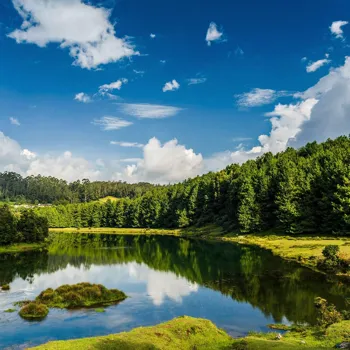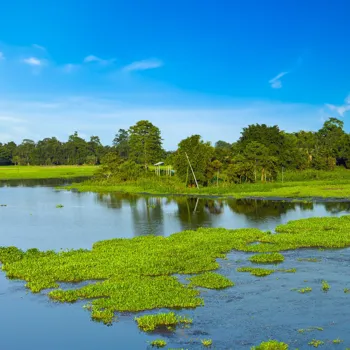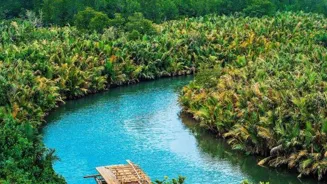Discover how to explore India's nature reserves sustainably, supporting conservation efforts and minimizing impact. Read more!
India, the land of vibrant cultures and breathtaking landscapes, also boasts
a remarkable array of wildlife sanctuaries and nature reserves.

From the snow-capped Himalayas to the lush green forests of the Western Ghats, these protected areas offer a refuge for diverse species, contributing to ecological balance.
As our interest in wildlife tourism increases, it becomes ever so important to approach these natural spaces with responsibility and sustainability in mind. Let’s take a closer look at how we can explore India's nature reserves while minimizing our impact and supporting conservation efforts.
Sustainable tourism benefits environment and communities
Sustainable tourism isn't just a fancy word; it's a way of travelling that leaves a positive mark on the environment and local communities. When you visit a nature reserve with a sustainable mindset, you're choosing to protect the natural beauty and biodiversity for future generations.
This involves respecting wildlife, conserving resources, and supporting local economies. This support can be in the form of monetary help to develop and upkeep its habitat.
This might mean choosing eco-friendly accommodations, participating in responsible wildlife tours, and ensuring that your actions don't disturb the delicate balance of the ecosystem.
Choosing the right time for wildlife viewing is crucial
Choosing the right time to visit a nature reserve can greatly enhance your experience and reduce your impact. Peak season often brings larger crowds, which can disturb wildlife and strain resources.

Opting for the shoulder season (the months just before or after the peak season) can provide a more peaceful experience, with fewer tourists and still pleasant weather. Also, consider the specific animal behavior patterns.
For example, bird migration seasons or animal mating rituals can offer unique viewing opportunities while also increasing the vulnerability of certain species. Learn more about these opportunities.
Respect wildlife in nature reserves for ecological balance
Respecting wildlife is paramount when visiting nature reserves. Always maintain a safe distance from animals, avoid feeding them, and refrain from making loud noises. Feeding wildlife can disrupt their natural feeding habits and make them dependent on humans, leading to ecological imbalances.

Loud noises can stress animals and interfere with their communication and hunting patterns. Follow the guidelines provided by park authorities and tour guides, and remember that you are a guest in their home. Take plenty of pictures, but use your zoom lens and keep a respectful distance.
Support local communities for sustainable wildlife tourism
Supporting local communities is an integral part of sustainable wildlife tourism. Choose accommodations, tour operators, and guides that are locally owned and operated. These businesses often have a deeper understanding of the environment and are more committed to conservation.

Purchase souvenirs and handicrafts directly from local artisans, ensuring that your money stays within the community. Supporting local businesses helps to create jobs, improve livelihoods, and foster a sense of stewardship towards the natural environment.
Also, educate yourself on the cultures and customs of the peoples around the reserve.
Responsible waste management vital for nature conservation
Responsible waste management is crucial in preserving the pristine beauty of nature reserves. Carry your own reusable water bottles, shopping bags, and containers to minimize the use of single-use plastics.
Dispose of your waste properly in designated bins, and if you can, participate in cleanup initiatives organized by the park authorities or local communities. Always pack out everything you pack in, leaving no trace of your visit.
By reducing your waste footprint, you contribute to the overall health of the ecosystem and help to maintain a clean and inviting environment for wildlife and future visitors alike.
AI Generated Content. Glance/InMobi shall have no liability for the content














